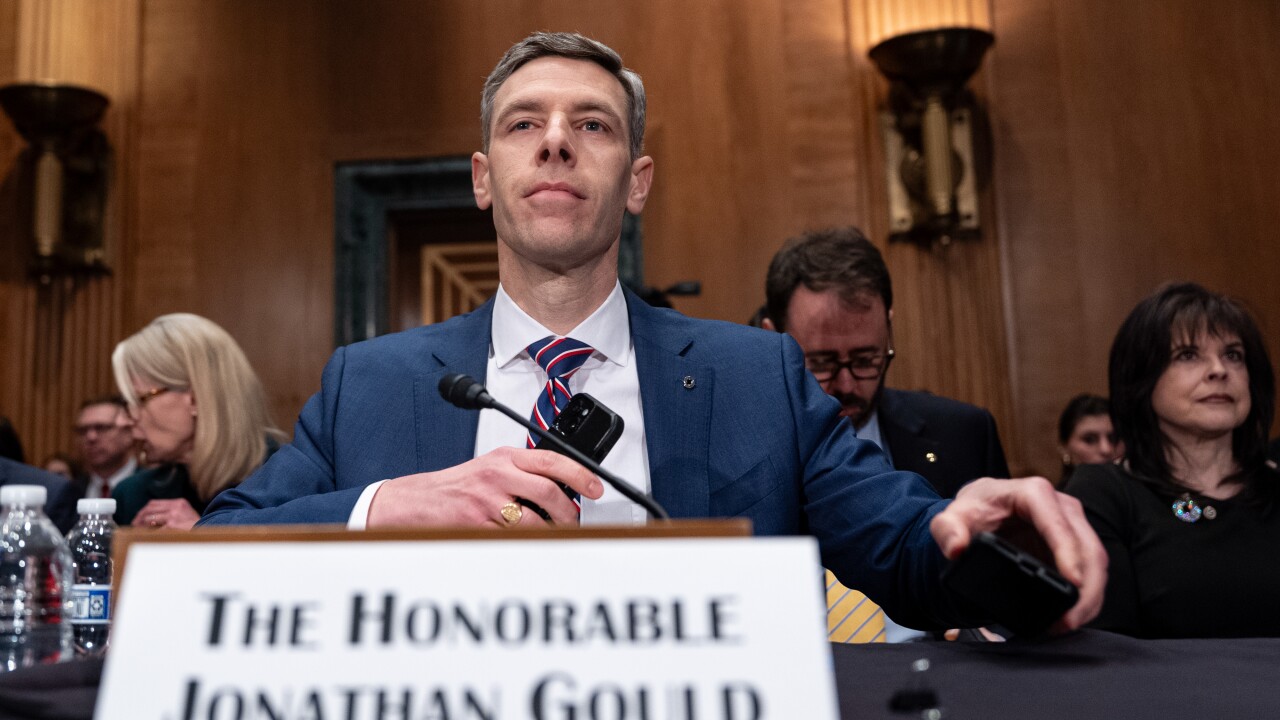KeyBanc Capital Markets' plans for the new year include hiring a wide range of dealmakers as part of an ongoing effort to capture more middle-market clients.
The investment banking unit of Cleveland's KeyCorp expects to hire professionals to buffer its equity and debt sales and trading businesses, investment banking and research lines. It is responding to what it calls a lack of attention by other firms on middle-market businesses, which it defines as those with enterprise values of $50 million to $2 billion.
Elements of the expansion plans predate the credit crisis but were revived in conversations last year between Douglas Preiser, the investment bank's chief operating officer, and Andrew Paine, executive vice president and head of corporate and investment banking. The executives said the expansion itself began this year and is expected to continue into next year. "There aren't many firms that serve the middle market … that combine a completely integrated corporate and investment bank which is completely aligned around a single strategy, which, in our case, is an industry-focused, middle-market-oriented approach to clients," Paine said.
KeyBanc considers firms like JPMorgan Chase and Bank of America as its competitors in the middle-market space. It has investment bankers focused on real estate, consumer, industrial and energy industries.
(The energy line includes utilities and oil and gas; the industrial line includes chemical, steel, building products, automotive and packaging businesses.)
"We did a very deep assessment of those areas, what the fee opportunity was, what the competitive dynamic looked like," said Paine. "From that analysis, we picked some areas we wanted to invest in that we thought fit with our model."
Like its counterparts at the other large commercial banks, KeyBanc relies on its parent's balance sheet to bring in new middle-market clients. KeyBanc was formed when KeyCorp purchased McDonald & Co. in 1998. In 2007, Key sold the retail brokerage to UBS and retained the institutional business that served as the foundation for the investment banking arm. The $94 billion-asset parent, the nation's 12th-largest banking company by assets, has more than 1,000 bank branches.
In October, it posted a third-quarter profit of $163 million, or 19 cents a share, a year after reporting a loss of $422 million, or 50 cents a share.
This year's hirings include Brad Swanson, a consumer banking pro from RBC Capital Markets; Greg Munsell, a Morgan Stanley veteran who works with business services companies, and Russ Landon from Canaccord Genuity who will start up and lead the firm's clean-tech practice.
It also brought on specialists to work with commercial and industrial real-estate investment trusts, whose efforts to raise money through equity sales have kept the unit particularly busy lately.
KeyBanc says it still wants to hire an investment banker specializing in building products, as well as corporate finance professionals who focus on private-equity financiers.
Executives at the investment banking unit said they are looking for financial sponsor specialists based on the East Coast. Preiser and Paine said their unit had planned to bring in private-equity dealmakers sooner but held off because of the credit crisis.
"We had not fully leveraged the capabilities in the financial sponsor realm," Preiser said. "By the time we got our eye on the ball there, it was 2007. It was tough to differentiate [ourselves]. Pricing, lending were competitive, so we kept it on hold."
The push to build a rapport with private-equity firms ties in with the unit's focus on areas like industrial and consumer sectors, which make up a significant slice of financial sponsor portfolios.
According to data Thomson Reuters published last month, third-quarter investments by financial sponsors in the Americas rose 7% from the second quarter; the investors were particularly active with business services firms.
KeyBanc may already be making inroads in the world of private equity; it helped arrange financing for Goldman Sachs Private Equity Group's January purchase of Kenan Advantage Group from Littlejohn & Co.
Interestingly, KeyBanc's investment bankers had been advising someone who made an unsuccessful bid for the Canton, Ohio, logistics company. The unit then pitched its services to Goldman as a debt underwriter. "We did it right in the middle of the Greek debt crisis," Paine recalled.
The allure of working with private-equity firms becomes obvious when considering a Freeman & Co. report published in October: Investment banks likely will collect $5.1 billion of fees this year from dealings with financial sponsors, and the sponsors will make a record 192 mergers and acquisitions worth $100 million or less.
Another research firm, GF Data Resources LLC, said the number of third-quarter deals involving companies with enterprise values of $10 million to $250 million jumped 65% from a year earlier.
"Within our targeted universe of companies, there is a tremendous amount of opportunity from an investment standpoint and also from a transactional standpoint," Preiser said.
Asked whether the primary source of fee income will be corporate debt refinancings, M&A advisory work or equity and debt sales, Preiser and Paine said they expect mandates from "all of the above."
In the meantime, KeyBanc plans to hire professionals for its equity and fixed-income sales and trading areas as well as equity research, according to Preiser, who runs the teams. Fixed income has 46 salespeople who operate with municipal and corporate debt, Treasuries, agencies and conforming mortgage-backed securities, he said, but "we will continue to add salespeople next year."
Preiser also said his unit is highly interested in building its presence in high-yield debt markets, where it wants to bring on sales pros, traders and research specialists. The thinking is that many firms owned by private equity will want to turn to KeyBanc to help sell corporate debt to finance purchases of other businesses or pay down existing debt.
The fixed-income trading desks make markets for corporate debt issued by energy, industrial and utility businesses. The capital markets group is also an active trader in commercial mortgage-backed securities; its parent company is a significant lender in commercial real estate finance.
In equity capital markets, KeyBanc wants to increase the number of companies it tracks. Preiser said his 26 equity analysts follow 425 companies, but by late next year, he wants the analysts to track "upwards of 500 companies."
(According to Preiser, 80% of the unit's equity research involves companies with a market capitalization of $5 billion or less; 55% of the companies followed by its equity analysts have a market cap of $2 billion or less.)
Preiser and Paine said that in expanding their unit, they will not stray far from the industry verticals they already focus on. That is because they aim to deepen knowledge within a specialty area to build on current expertise. Both use the term "adjacencies" to describe their approach.
For example, they said bankers with clients involved with manufacturing businesses could exchange ideas with clean-tech bankers with wind-farm developers as clients; the manufacturers could develop components for the wind farms.
Also, utilities clients would watch closely for any developments in smart-grid technology.
"We are really excited about combining those relationships," Preiser said. Both dealmakers offered conservative outlooks for the U.S. economy, but they said other factors likely will keep their deal teams busy. "I don't see robust growth by any measure … but with that, we have seen record cash flows" among corporations, said Paine who believes the robust balance sheets likely will result in more transactions.
Preiser also pointed out that other factors could keep Keybanc dealmakers busy. "While the outlook here for growth domestically is for relatively slow growth, when you look at the companies we interact with, they do have tremendous opportunities to take advantage of what is going on overseas and some of the emerging markets," he said.





